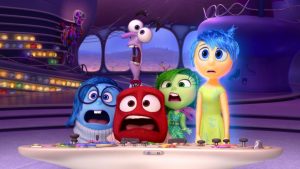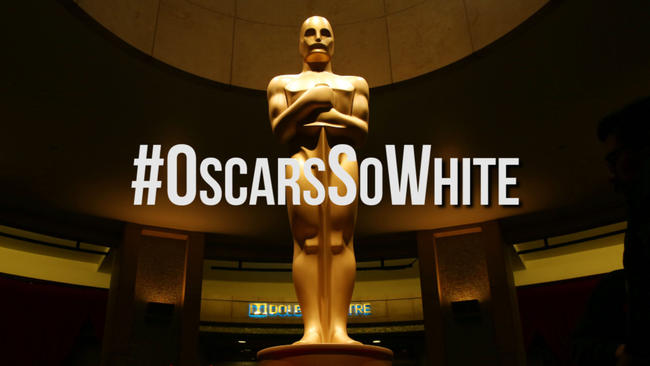
The Oscars are Hollywood’s night to celebrate great accomplishments in film over the past year, and every year the film industry’s elite gather inside the Dolby Theater to participate in the ceremony. This year’s Oscars was full of surprises, one of the largest being the fact that nearly all of the nominees were white. Even with the threat of a boycott from many members of the film community, the show premiered on February 28th, 2016. Here is an analytic recap of Oscar night.
The biggest award of the night, Best Picture, went to a very controversial and talked about film, Spotlight. With staunch competition from popular favorites Mad Max: Fury Road, The Martian, and The Revenant as well as Oscar-bait movies like Brooklyn and Bridge of Spies, the movie managed to stand out due to its masterful direction, script, and quality of acting. Boasting one of the strongest ensemble casts in recent history including Mark Ruffalo, Michael Keaton, Rachel McAdams, Stanely Tucci, and Liev Schreiber, The Boston Globe’s story on the church’s molestation crisis and subsequent cover-up became one of the year’s most talked about films from the minute it was first screened and even received acclaim from the Vatican . The story of heroism and fearless reporting in the face of obstacles also won over The Academy and won Spotlight another Oscar for Best Original Screenplay.

The Revenant was also a big winner on Oscar night, taking home 3 awards, including Best Actor for Leonardo DiCaprio. Memes have been all over the internet for years, poking fun at the ridiculousness that WAS DiCaprio’s lack of an Oscar win, despite 5 previous nominations and numerous other incredible performances. DiCaprio’s win was certainly deserved, as his performance as left-for-dead fur trapper, Hugh Glass, was altogether heartbreaking, intense, grotesque, elegant, and daring, though many wondered why it took so long! DiCaprio was certainly the best this season, though his work in The Wolf of Wall Street, The Aviator, and Blood Diamond were accomplished and deserving, he lost out to reborn Matthew McConaughey, and acting heavyweights Daniel Day Lewis and Philip Seymour Hoffman for their performances in Dallas Buyer’s Club, There Will Be Blood, and Capote, respectively, each of which dominated awards season during their year. DiCaprio simply had to wait in line, because this year it was obviously his turn, taking home the Oscar, the Golden Globe, the SAG Award, a Critics Choice Award, and the BAFTA.
The film also won Best Director for Alejandro G. Iñárritu, making him one of 3 directors to win the award back to back. He won last year for Birdman or (The Unexpected Virtue of Ignorance), and this year he won for The Revenant, obviously due to the complexity of the film, the brilliant use of only natural light, the complicated terrain, minimal CGI, and daring shots. The win was greatly deserved, though many expected George Miller of Mad Max: Fury Road or Tom McCarthy of Spotlight to take home the award for their much talked about films, though they lacked the same artistry and unconventional methods that likely won Iñárritu the Oscar.
Finally, The Revenant also won for its incredible cinematography, the third consecutive award for Emmanuel Lubezki, winning the past 2 years for his work on Birdman or (The Unexpected Virtue of Ignorance) and Gravity. The Oscar was clearly awarded to Lubezki for his beautiful capturing of nature in winter, especially under only natural light.

One of the fan favorites and biggest projected winner of the night was Mad Max, a dystopian movie about survival and a fight for freedom set in a mythical desert. The Roundup reviewed Mad Max its opening weekend with high expectations for its success, and the film delivered with a decisive sweep of the production awards including Costume Design, Makeup and Hairstyling, Production Design, Film Editing, Sound Mixing, and Sound Editing. This came as a surprise to many, considering staunch competition from both the ornate gowns of Cinderella in costume design and the popularity strength of Star Wars in both Sound Editing and Sound Mixing. However, what gave Mad Max this huge boost in production awards is the meticulous attention to detail rife throughout the film. At any given frame, a myriad of visual and auditory nuances explode off of the screen, the entire experience too captivating to go unnoticed. Although I was disappointed Mad Max couldn’t win Best Director of Best Film, the upset was not overall surprising. Many people could not see beyond the action and excitement of the movie, and it may be several decades until such a progressive film wins Best Picture. Despite these barriers, Mad Max received the praise it deserved and left Oscar Night the biggest winners.

Going into Oscar Night, one of the easiest predicted Oscar awards was Brie Larson for her mind-blowing performance in Room. Larson swept the awards season, racking up Best Actress nods seemingly every weekend. Despite the strong nominees of Cate Blanchett in the progressive lesbian film Carol and the Hollywood golden girl of Jennifer Lawrence, Brie Larson’s moving depiction of a woman overcoming a horrible series of catastrophes resonated with audiences of all beliefs and ideologies.

Deservedly so, Alicia Vikander took home the Oscar for Best Supporting Actress, though many argue that she won for the wrong movie. While her performance as Gerda Wegener, the former wife of Lili Elbe, in The Danish Girl is certainly capable, many believe she should’ve won for her performance as Ava, a humanoid robot with artificial intelligence, in Ex Machina. First of all, Vikander’s performance in The Danish Girl should have been treated as a lead performance, as the film was just as much her showcase as it was Best Actor nominee, Eddie Redmayne’s, though production companies believed that Vikander would have a better chance in the supporting category, especially with Best Actress frontrunner, Brie Larson, taking home most of the awards for her commendable performance in Room. The fact that Vikander’s performance boasted more screen time than her other nominees certainly gave her a leg up in the race, though fellow nominee, Rooney Mara, was also accused of some category fraud for her larger-than-supporting-role in Carol. Another argument can be made that Vikander’s performance as a developing robot with AI in Ex Machina sported more depth and more intrigue than her more bland performance as a conflicted wife in The Danish Girl. Altogether, Vikander certainly deserved the award, though category fraud and a severely overlooked indie film resulted in a win for the wrong movie.

Ex Machina didn’t go home empty handed though. It did take home the Oscar for Best Visual Effects, beating out frontrunners such as Star Wars: The Force Awakens and The Martian. Of course the mesmerizing humanoid robots in Ex Machina deserved attention for their realism and intricacy, though many believed the Academy would award the statuette to a much higher budgeted film with more momentum. Ex Machina is certainly deserving, though many consider its win a snub.
Louis CK for the first time in years brought attention to the Documentary Short Subject category as his personal favorite category, saying, “You cannot make a dime on this…So this Oscar means something, because all they do is tell stories that are important.” The films in the documentary and foreign film categories very rarely get attention from popular media, but impactful films like this year’s winner A Girl in the River: The Price of Forgiveness about a Pakistani woman who almost dies for falling in love highlight the real-world importance of this genre. For Documentary Feature the highly publicized look into Amy Winehouse’s life Amy unsurprisingly won the category. The World War themed Son of Saul also won Best Foreign Language Film for its heartbreaking depiction of a Jewish father searching for a rabbi to bury his son.
As always, the music section of the show was filled with intense competition and exciting live performances from Sam Smith, The Weeknd, and Lady Gaga. Although Sam Smith might have choked vocally during his rendition of “Writing’s On The Wall,” the song did not disappoint and won the category over fan-favorites Lady Gaga’s “Til It Happens To You” and The Weeknd’s “Earned It.” Personally, Gaga’s moving ballad and powerful message against sexual assault deserved the Oscar; however, like Adele before him, Smith recently won an Oscar and boasts over 100 million views of his song on YouTube. Out of all the things audiences remembered Tarantino’s latest thriller The Hateful Eight for, the score was not one of them! Despite an underwhelming number of nominations and awards, the gory blockbuster managed to win in this hyper-competitive category over industry tycoons like John Williams for The Force Awakens.
The winner for Best Animated Short Film was easily predictable from the moment the nominees were announced, The Bear Story masterfully weaving together powerful political and emotional messages. Directed by Chilean Gabriel Osorio, this tale of a circus bear who uses a diorama to recreate his long lost wife and son draws parallels to the destruction of families during the 1970s Pinochet regime in Chile. This theme of loneliness continued with the winner for the best Live Action Short Film Stutterer depicting the meeting of a man with a serious speech impediment and his lover who has no idea about his condition. The use of suspense and building of tension makes both Oscar winners worth watching, especially since they’re both under 15 minutes.

Best Animated Feature was one of the only true locks of the night, ultimately going to the producers and animators for Pixar’s hit, Inside Out. Inside Out was one of the biggest movies of the summer. It was lauded by critics and audiences alike for its novel concept and creativity, resulting in its nominations for Best Animated Feature and Best Original Screenplay. Pixar original films always tend to do well at the Oscars, especially in the animation categories, though this year Inside Out struck a different chord, delving into the complexity of human emotions while also breaking the hearts of audiences everywhere as well as uplifting them. Also, the idea that our own feelings can have feelings is super out-of-the-box, but it obviously worked.

The big shocker of Oscar night was Mark Rylance’s win for Best Supporting Actor for his work in Spielberg’s Bridge of Spies. Rylance played a Soviet spy from the 1950s, and while his performance wasn’t undeserving, many believed that Sylvester Stallone would take home the award for his reprise of his breakthrough role, Rocky Balboa, in Creed. Even then, if Stallone didn’t win, many believe Tom Hardy gave a capable enough performance in The Revenant to win. With Rylance’s lack of momentum throughout awards season and the presence of perhaps more deserving nominees in the category, his win came as a big shock on Oscar night.
Much like the Supporting Oscar win, The Big Short’s win for Best Adapted Screenplay shocked audiences and viewers alike. The Academy tends to lean towards more political or social justice films for this section, evidenced by the winners of the past several years including The Imitation Game, 12 Years a Slave, and Argo. Additionally, the huge success of sci-fi novel The Martian both in novel form and in box offices made this loss a particularly surprising one. However, the strength of movies charged with real-world issues in an election cycle clinched this victory for this Adam McKay and Charles Randolph comedy-drama.
Although many movies like Mad Max and The Revenant won big, the winner of the most attention and controversy was the issue of diversity and minority representation in movies. This was largely unexpected after the Academy nominated all white actors for the second consecutive year. Although the organization devoted a majority of the shows run-time to discussion racial discrimination in casting and nomination for awards, the Academy of Motion Pictures completely destroyed its progress on discussing the issue with the use of a ridiculous and completely unnecessary Asian joke. While sensitive issues like discrimination in cinema have been brought to the forefront of conversation, reliance upon crude racial jokes for cheap laughs damages the entire message. With all the support host Chris Rock and speakers like Kevin Hart gave to black actors and directors, a huge number of severely marginalized groups were noticeably absent from the conversation including the continued prominence of gender bias and only 49 actors on the major TV networks are of Asian descent. While we’d love to spend time breaking down and discussing the issue, a full and comprehensive analysis of this complex issue merits its own article. The Roundup will be following up this story in the near future, so make sure to keep checking the website for the next installment!






